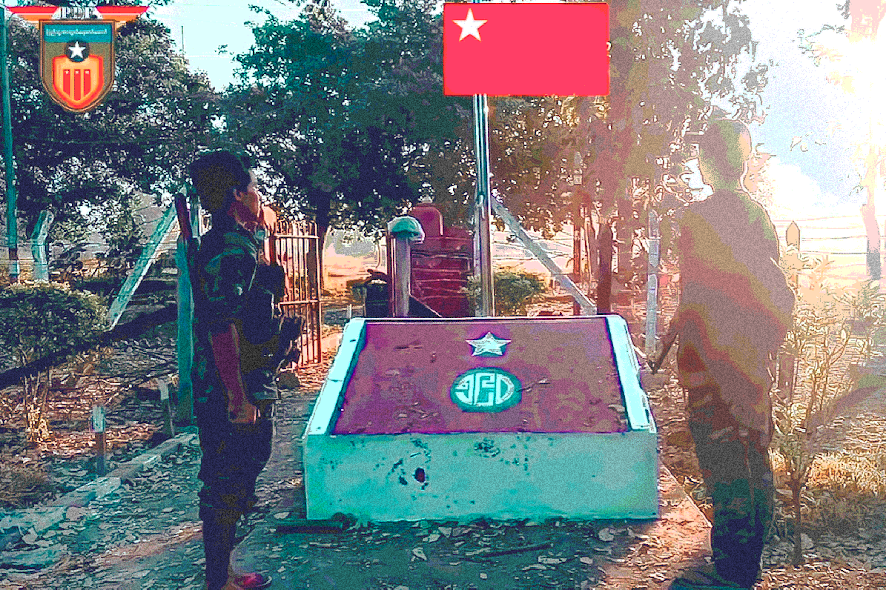Myanmar Spring Chronicle – December 07
MoeMaKa, December 08, 2023
Intensified Conflict in Kokang and Bago; Administrative Preparations in Karenni State
Recent developments in the ongoing conflict are making headlines, including the capture of base camps around Laukkaing in Kokang and the sustained fighting after taking over the town of Mone in Nyaunglebin District, northwest of Bago Region. Additionally, the Interim Council’s issuance of legal summaries for law enforcement and judiciary in Karenni State and the military council’s response to the foreign currency crisis are notable news items.
Reports indicate that Laukkaing town in the Kokang region has been besieged by the Kokang army for weeks, resulting in the capture of military council camps in the vicinity. Although the timing and scale of a potential intense attack by the Kokang armed group remain uncertain, recent days have seen the capture of military council forces stationed on the Lay Myat Nar pagoda hill near the city.
In a recent development, Brigadier General Aung Zaw Lin, the commander of the Military Council Operations Command (SaKaKha), was reported killed during an encounter with pursuing Kokang armed groups. The loss of a brigadier general at the operational command level underscores the disorder within the military council.
This follows the death of a Brigadier General in Monekoe due to a drone bomb within the past month. The ongoing conflicts in various regions are demonstrating the challenges faced by the military council.
In the northern Shan State, the 3 Northern Brotherhood Alliances engaged military council troops, leading to their retreat, capture, and seizure of camps. The military council, unable to regroup and counter-offensive, retreated to Kyaukme from Mandalay and Pyin Oo Lwin sides. More than a month into Operation 1027, the military council has adopted a defensive stance, abandoning multiple areas. Meanwhile, the 3 Northern Brotherhood Alliances appear to have achieved a significant portion of their objectives.
Simultaneously, KNU forces, collaborating with allied armed groups, attacked battalion bases in Mone, northwest of Bago Region, reportedly capturing parts of the city. Although the military council denies Mone’s capture, KNU and joint forces assert otherwise.
In Mon State, KNU forces have been contending for control of the Sabalgu Bridge in Kyaikmaraw Township for over a week, following their earlier capture of the Chaunghnakhwa Bridge. The audible reverberations of heavy weapons during the Kyaikmaraw battle suggest its impact reaching Mawlamyine in Mon State.
In Karenni State, the deadlock in capturing Loikaw, initiated on November 11, persists. Amid this, the Karenni State Interim Council has introduced laws governing law enforcement, police activities, and judicial procedures. Establishing administrative stability in a state largely displaced by war and residing in refugee camps is undoubtedly challenging. However, in the absence of military council administration, it is anticipated that these laws will be enforced in areas, villages, and camps under the control of the Karenni State Defense Forces and armed groups like KNPP, KNPLF, Kayan New Land Party, etc.
Currently, the primary responsibility lies in providing assistance to war refugees, a duty seemingly shouldered by local administration and armed groups. Among the displaced, a growing number of farmers and residents from small rural towns and villages have left their homes. With the escalation of war, the influx of displaced workers to various states and border areas is rising, posing potential disruptions to agriculture, local businesses, and production activities. Revolutionary forces must brace for the impact on these sectors and formulate responsive strategies.

